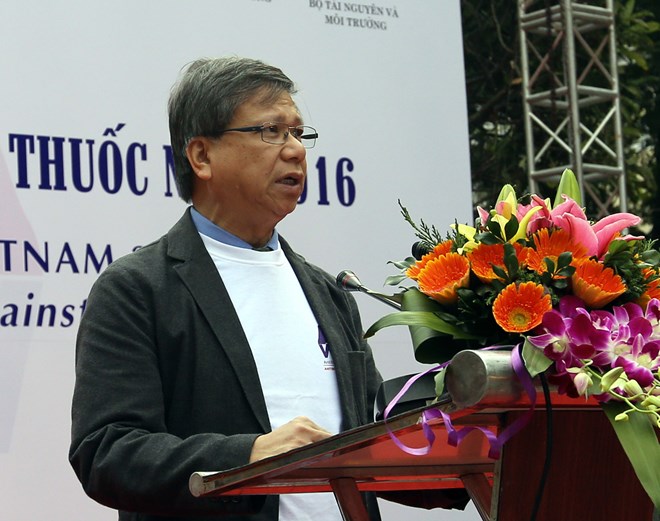
World Health Organisation (WHO) Representative to Vietnam Lokky Wai has called on Vietnam to undertake more efforts to combat antimicrobial resistance (AMR).
 |
| WHO Representative to Vietnam Lokky Wai speaks at the event. |
World Health Organisation (WHO) Representative to Vietnam Lokky Wai has called on Vietnam to undertake more efforts to combat antimicrobial resistance (AMR).
“The most important factor that contributes to the rise of AMR is the use of antibiotics in humans and animals. Therefore, the most effective measure the government can take is to control the use of antibiotics and ensure they are used appropriately,” Wai said at a meeting to mark Vietnam Antibiotic Awareness Week 2016 on November 30 in Hanoi.
Wai said the increase of antibiotic production, supply and use has contributed to the spread of AMR in the environment and food chain due to the increasing pressure to meet the global food demand of people and international trade, along with industrialization, urbanisation and expansion of the health services sector.
“The role of other sectors, such as trade, industry, environment and natural resources, are therefore important to complement regulatory actions and closely monitor the spread of AMR in the food chain and environment,” Wai said.
“The inter-sectoral action undertaken in Vietnamis, therefore, a step in the right direction and is an excellent example for other countries in the region. By committing to work together, Vietnam is making a great contribution to the global fight against AMR,” the WHO representative added.
“Last year, we had 400,000 individuals pledging to help fight AMR. We will continue to gather more pledges until we reach the one million mark to demonstrate the public’s support in building a healthy, safe and progressive Vietnam,” Wai said.
Speaking at the meeting, Luong Ngoc Khue, the health ministry’s Health Examination and Management Department director, said antimicrobial resistance is a risk to Vietnam’s people and economy following the increase in antibiotic use and lax management of antibiotic use in healthcare and animal husbandry.
Vietnam is in the list of countries with a high AMR rate due to insufficient awareness on antibiotic and AMR in community and health workers. Many residents purchase and use antibiotics without a doctor’s prescription or overuse the latest antibiotics prescribed by doctors. Excessive use of antibiotics in animal and aquaculture production is also a reason for the increase of AMR in the country, according to Khue.
The annual week, titled "Together and Stronger against AMR," aims to increase awareness of global antibiotic resistance and to encourage best practices among the general public, health workers and policy makers to avoid further emergence and spread of antibiotic resistance.
According to WHO, AMR results in some 700,000 global deaths per year. By 2050, the number of deaths attributed to AMR is estimated to be 10 million per year, more than the estimate for cancer and 10 times more than the estimate for diabetes.
(Source: VNA)





